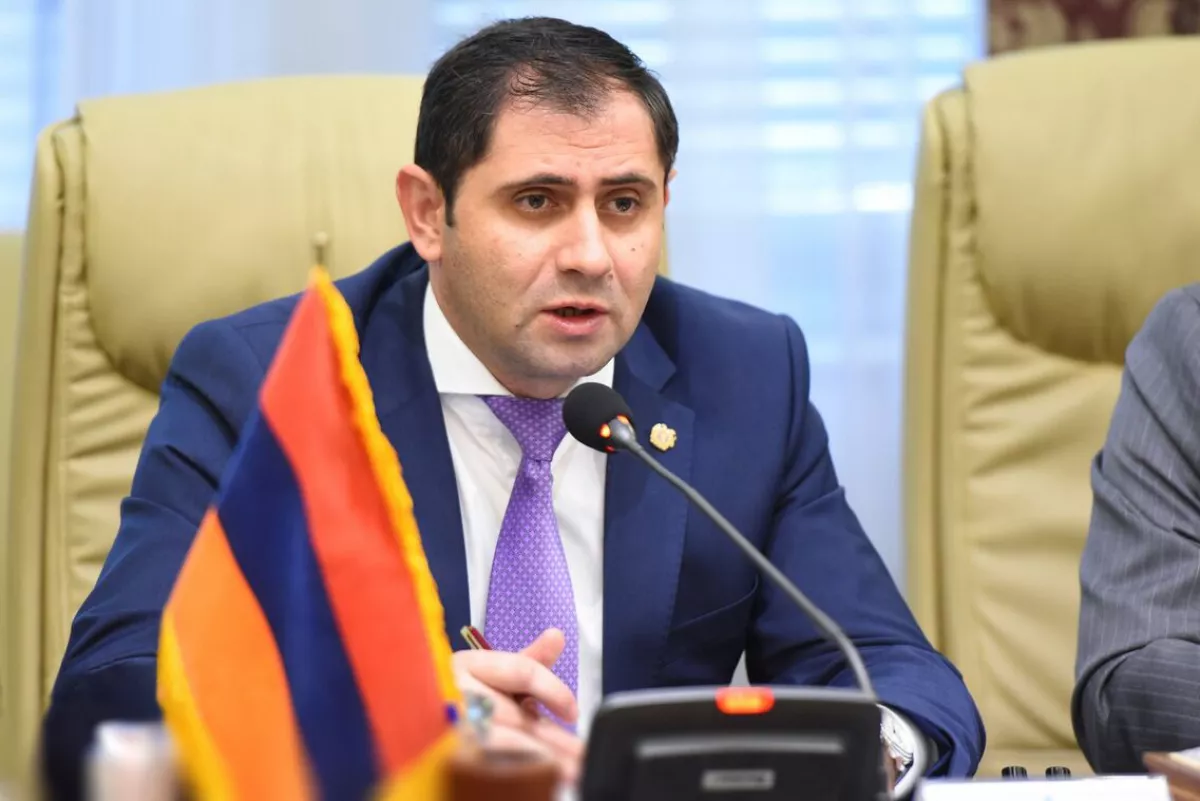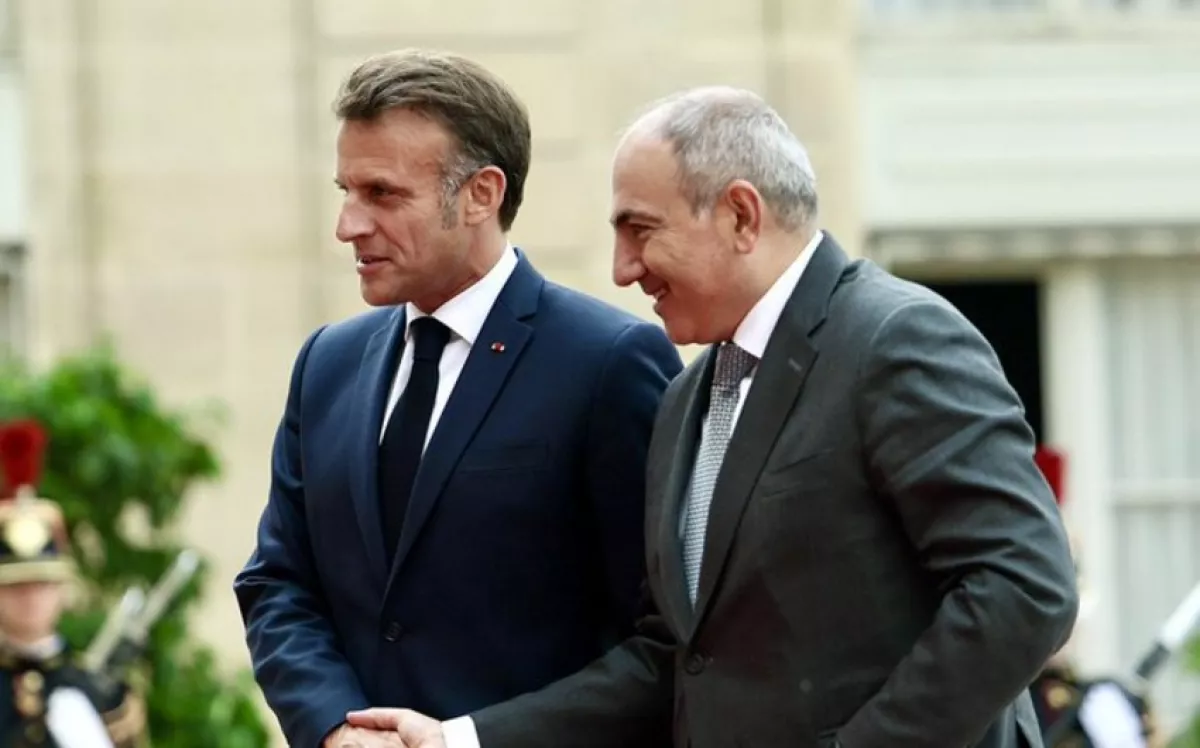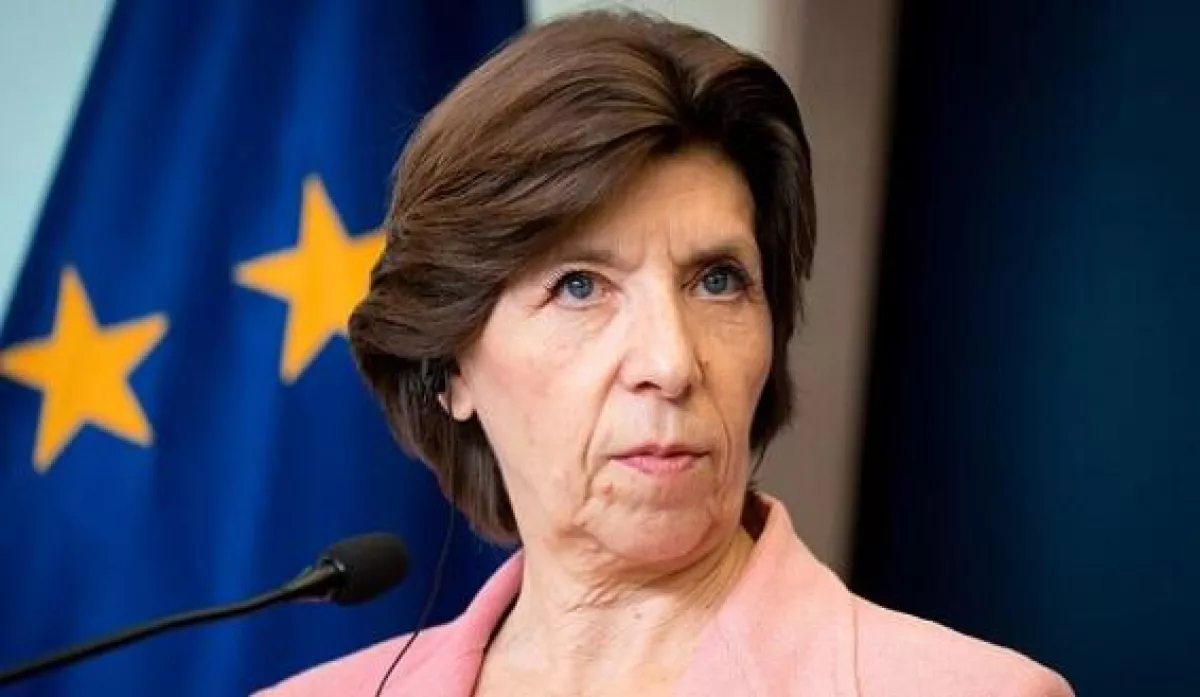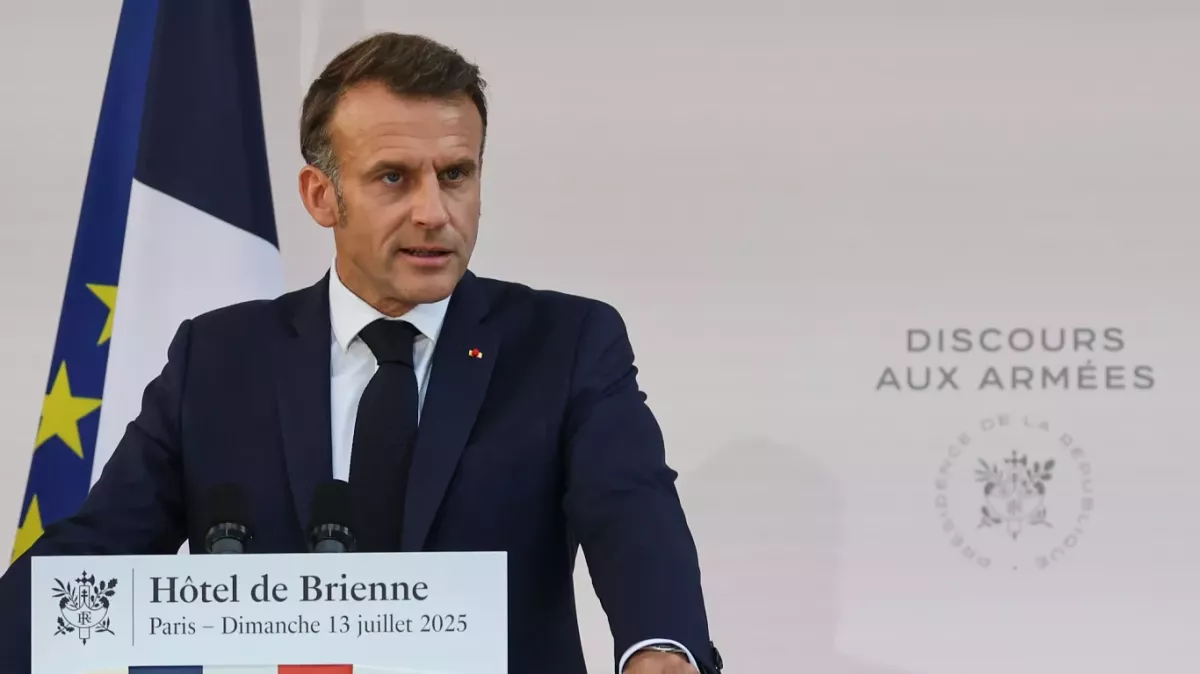Pashinyan’s Paris tour A pretext for another round of Armenian militarisation
So, Armenian Prime Minister Nikol Pashinyan has made a stop in Paris as part of his European tour. It is worth noting that this is his second visit to the Fifth Republic this year—the previous one took place on February 10–11, when he participated in the Summit on Artificial Intelligence.
This time, the Armenian premier’s visit coincided with France’s national holiday—Bastille Day. Interestingly, Armenian Defence Minister Suren Papikyan had earlier published a congratulatory message on his X (formerly Twitter) account on the occasion, taking the opportunity to highlight the military cooperation between Yerevan and Paris.

“I extend my heartfelt congratulations to the friendly people of France, its leadership, & my counterpart, Minister for the Armed Forces of the French Republic Sébastien Lecornu on the occasion of the National Day. I wish France lasting peace, stability, & continued prosperity. I am confident that the close friendship & cooperation between Armenia and France —including in the field of defence—will continue to deepen, contributing to the peace and prosperity of both nations,” he stated.
As of today, Paris has effectively become the primary supplier of lethal weaponry to Armenia. The active militarisation of the country is one of Macron's France’s main objectives in the South Caucasus, with the clear intent of destabilising the region. For Armenia, this not only offers a chance to replenish its severely depleted arsenal following its crushing defeat in the Second Karabakh War, but also fuels delusional hopes of a possible revanche.
Against this backdrop, President Emmanuel Macron’s lofty statements in support of Armenian-Azerbaijani normalisation are nothing more than a play on words, aimed squarely at an international audience. Once again, the French leader resorted to declarative rhetoric regarding the normalisation of relations between Baku and Yerevan, posting a theatrically optimistic message on social media: “I reaffirmed France’s support for his [Pashinyan’s] courageous efforts aimed at establishing peace with Azerbaijan. A swift signing of a peace agreement between Armenia and Azerbaijan could open a new chapter for all peoples and countries in the region and beyond.”

Let us return to the talks between the Armenian and French leaders and, more broadly, to the purpose of Pashinyan’s visit to Paris. One key detail stands out: the Armenian prime minister arrived in France immediately after meetings with senior EU officials in Brussels. This sequence of events leads to a telling conclusion—Pashinyan came to Paris to personally report back to Macron on the outcomes of those negotiations and to receive further instructions from Armenia’s “big sister” on strategically significant aspects of its foreign policy and regional matters of interest to France as well.
For instance, the Armenian-Azerbaijani normalisation process, which clearly runs counter to Paris’s political agenda. This is underscored by France’s ongoing military build-up in Armenia—a point we have raised repeatedly. The situation is so transparent that it would be naïve to expect a fundamental shift in the Élysée Palace’s policy on the matter, even if Macron were to issue a thousand public statements. And that is just the first point.
Secondly, it is objectively clear that the Fifth Republic is using Armenia as a bargaining chip to advance its own interests in the South Caucasus region, while also pushing for EU funding of the country. After all, everything comes at a price. As a result of France’s lobbying efforts, Armenia received €10 million in July 2024 from the European Peace Facility to support its armed forces. Particular enthusiasm on this front was shown by Catherine Colonna during her tenure as France’s Foreign Minister. Known for her staunchly pro-Armenian stance, Ms. Colonna personally appealed to the then–EU High Representative Josep Borrell—a well-known “friend” of the global Armenian community—to support this initiative.
In December 2023, France allocated €15 million in so-called emergency humanitarian aid to Armenia, and is currently actively promoting the idea of increasing EU financial assistance to Yerevan to €2.5 billion through the European Council and the European Commission. All of these initiatives are being pushed under the convenient slogan of “enhancing security in the South Caucasus.”

The aforementioned Catherine Colonna, in one of her interviews, explicitly called on the EU to provide Armenia with the necessary assistance to supposedly bolster its defensive capabilities, arguing that the security of the region directly affects the stability of Europe. A similar narrative has also been echoed within EU institutions themselves.
These calls were further reinforced by French Defence Minister Sébastien Lecornu, who in March 2025 urged the European Union to expand its assistance to Armenia.
President Macron repeated the same refrain during his meeting with Pashinyan, declaring that France would support Armenia in its quest for security and would continue working with EU partners to increase aid, including military assistance. In essence, he indirectly signalled that France is prepared to do everything possible to further militarise Armenia—an effort clearly aimed at fuelling instability in the region.
This comes as no surprise, given that Macron’s foreign policy strategy increasingly encourages a doctrine of militarism and territorial projection. It is no coincidence that in his traditional Bastille Day address, the French president announced plans to increase military spending, pledging an additional €6.5 billion for the defence sector.

“To be free in this world, we must be feared. To be feared, we must be powerful,” declared Macron, noting that he had instructed France’s senior military leadership to launch a “strategic dialogue” with European partners regarding the role France’s nuclear arsenal could play in Europe’s defence.
Following its humiliating expulsion from the African continent, France is now desperately trying to salvage its tarnished global image by pursuing dubious ambitions in regional geopolitics—including in the South Caucasus. And in this campaign, Armenia has been assigned a central role—one that is inevitably leading it toward the edge of an abyss. Whether it ultimately falls into that abyss or manages to avoid the plunge is a choice that rests solely with Armenia.








